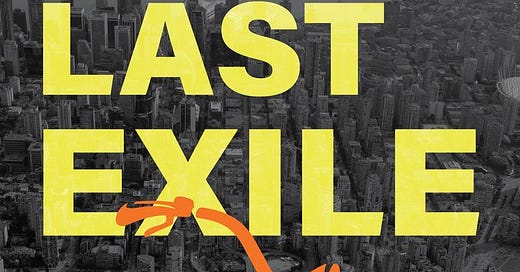Since Sunset and Jericho ended with Dave leaving town, I began thinking what it would take to bring him back. A personal connection and a difficult professional case. That’s the genesis of The Last Exile.
Dave Wakeland is summoned back by his partner’s cousin, a lawyer whose client is accused of killing the retired president of the Exiles biker gang and his wife.
This is the second part of a Q&A on The Last Exile.
Wakeland is a combination of brave and a little bit reckless. Are these required traits for a private investigator?
What makes him interesting, to me at least, is not wanting to save the day, but wanting to know. Not just who, but why. There’s always a cost to finding out. Good or bad, Dave Wakeland is willing to pay that cost.
As in real life, some of the characters in The Last Exile get over their heads in risky situations with no foolproof exit strategy.
I don’t want to write criminals as part of a noble brotherhood, but I also don’t want to portray them as psychotic villains, either. They’re as complex as anybody else. The Sopranos is the gold standard.
But I also think, we get the gangsters we deserve. Vancouver boasts of certain values. In a way, its organized criminals reflect those back at us.
Some of the women in these underground worlds become willing participants, even collaborators.
Absolutely. Mob wives run the gamut from uninvolved to managing legitimate businesses, to running rackets of their own. There’s a Faustian bargain to that wealth and power, which is interesting to explore.
There have been rumblings about a Wakeland series for television. Any thoughts on the casting?
At the moment the films rights are back to me. As weird as it might sound, I’m less interested in casting than in setting, getting the city right. If it happens, and it’s any good, it’ll be because the producer or showrunner gets Vancouver.




